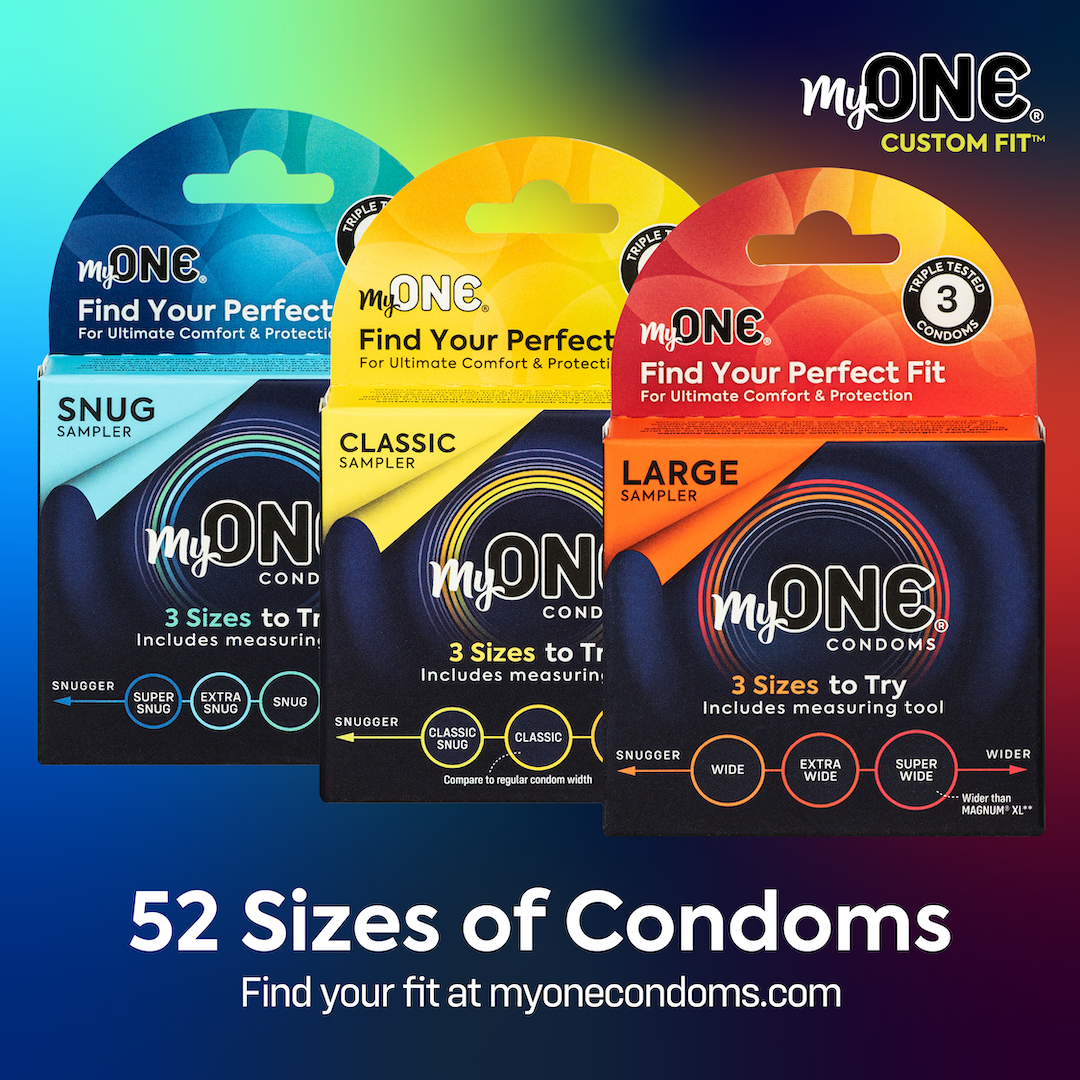Several days ago, Intact America posted this meme on Facebook:
The response was astonishing – the posting got the greatest number of views and comments, by far, of anything we’ve ever posted on our Facebook page.
Many of the comments contained arguments and rejoinders about the relative “badness” of circumcision and rape; some objected strenuously to the insinuation that circumcision was “as bad as” rape; and others said that circumcising an unconsenting infant was “worse than” raping an unconscious woman.
These arguments miss the point of the meme, which is: The fact that a victim has no memory of having been wronged does not mean that a wrong has not been done, nor does it let the wrongdoer off the hook.
Think of it this way: If a neighbor enters your home unbeknownst to you, takes a gold necklace from your jewelry box, and leaves, and you never discover that the necklace is missing, did a burglary occur? Of course. Is the neighbor who took the necklace not guilty, simply because you didn’t miss the item? Of course not. Your home was burgled, and your neighbor is guilty of burglary.
Why should wrongs committed upon someone else’s body be different from a property crime?
Both circumcision and rape meet the common law definition of battery – an intentional, unpermitted act causing harmful or offensive contact with the “person” of another. What makes the act in question “unpermitted” is that the victim did not consent. Lack of consent doesn’t require the victim’s active objection; rather it may come from legal incapacity (i.e., an unconscious individual is, by law, incapable of consenting; a baby is, by law, incapable of consenting). Whether or not the victim later recalls the battery (or recalls it at some subliminal level, as may be the case with any violent act) is irrelevant to the classification of the act as a violation of that person’s rights.
There are those who will say, with regard to infant circumcision, that consent has been given – by the parent. This is another legal fallacy. No person can consent to a legal violation of another. Just as I cannot tell a thief that it is alright for him or her to enter your home and remove your gold necklace, just as I cannot allow another person to have sex with my underage daughter, just as in the United States and most western countries, I cannot permit another person to slice off my minor daughter’s labia or clitoris, I cannot “consent to” (and thereby absolve from culpability the operator) the medically unnecessary removal of perfectly healthy, normal tissue from my son’s genitals. In medicine, parental or “proxy” consent is reserved for operations or treatments needed to save the life or health of a child. “Routine” circumcision – a cosmetic procedure – doesn’t meet this criterion.
The motive of the perpetrator, the batterer, is also irrelevant. The fact that the person who slices off a part of a child’s genitals thinks s/he’s doing the child a favor is no more a defense than the claim of a man who has sex with an incapacitated woman because she “needed it” or “asked for it.”
In striving for equal rights for all human beings, we must avoid being drawn into irreconcilable arguments about which of two horrors is more horrible, which of two violations is worse, and which of two victims is more entitled to protection or to sympathy (or, worse, which deserves condemnation). These arguments only serve as distractions from the real imperative – protecting the vulnerable and holding accountable those who violate them.
Georganne Chapin










TD
September 18, 2013 5:39 pmWell said, Georganne. I don’t get how this is such a difficult concept for some.
marcwolf1960Marcwolf
October 4, 2013 8:02 amI think the big problem is that people consider rape an atrocity against another.. but consider circumcision just a medical procedure.
It’s adverts like these that need to shock and upset that complacency.
Mina
September 18, 2013 5:51 pmone thing you quickly learn from Facebook when you post something like this that may find inflammatory: people regularly (and sometimes willfully) miss the point entirely.
I got the meme as soon as I saw it, but I don’t get personally offended or feel insulted by a photo like a lot of people (women) do.
“solipsism” is rampant among the female Facebook population.
Dan Bollinger
September 18, 2013 7:25 pmI think the sentiment, “No person can consent to a legal violation of another,” says it all. As a 62-year-old male who was such a victim at age three days, I can attest that not only did I not give consent, but that no other person in the building had the right to consent, and that circumcision was, to me, a violation — a rape of sorts.
Mina
September 18, 2013 8:09 pmof course, and it is misandry for women to attest that it is not the same thing.
Brother K
September 18, 2013 7:45 pm“The motive of the perpetrator, the batterer, is also irrelevant. The fact that the person who slices off a part of a child’s genitals thinks s/he’s doing the child a favor is no more a defense than the claim of a man who has sex with an incapacitated woman because she “needed it” or “asked for it.”” ~Georganne Chapin
JJ
September 18, 2013 9:03 pmI think that image was so controversial because it wasn’t clear from the caption that you were comparing a child’s lack of memory of circumcision to a girl’s lack of memory of being drugged and raped. I made a new image with a slightly different caption, and I don’t think there would have been such a huge controversy with this one:
http://imgur.com/Ro5MBUB
Tom Riddle
September 19, 2013 10:53 amThe original version was perfectly clear. The problem is just that the world is full of idiots who couldn’t reason properly if their lives depended upon it—that’s why such damaging nonsense as circumcision are so pervasive in the first place!
Erin
September 18, 2013 9:29 pmI understand it – it makes a great point about consent and memory: it is simply untrue that if you don’t “remember” something happening that it cannot impact you negatively. I think the same argument can go for people piercing infants’ ears, although at least the skin could grow back together in that case and a part of the ear wasn’t actually removed.
“No person can consent to a legal violation of another.” I agree with this at all levels. That is one of the main problems with abortion being legal – it allows somebody to legally violate and kill another person. I support bodily integrity in all forms!
Dan Bollinger
September 18, 2013 10:38 pmErin, I understand what you are saying, And, its not like ear piercing results in a loss of hearing. The foreskin is a man’s most sensitive sexual organ.
marcwolf1960Marcwolf
October 4, 2013 7:59 amFor me – the issue of abortion is different. I consider a baby to be truly alive when it can support itself independently of it’s mother. That is that the lungs are developed enough to breath and the digestive system can take up nutrients. Any stage before that is a foetus and thus up to the mother to decide if they wish to carry it to full term. If labour is induced before that term and the baby is capable of surviving ex-uterus then it can be adopted out.
Roger Howard
September 18, 2013 9:44 pmThe association made in the article is a good one, but Intactivist would do well to be examining / questioning the psychological motivation behind the act of circumcising innocent children. It is not for the love of God.
Catherine
September 18, 2013 10:22 pmI am not missing your point, but I *do* find the means by which you’re making it extremely offensive and alienating. Beyond the fact that equating children with women is such a willfully (and blatantly) misogynist trope (and no, femininity does not mean non-misogyny), equating doctors–who (for all their faults, faulty training, and arrogant application of personal belief) *are* generally operating with parental and social consent–with rapists (who are the most reviled (albeit unpunished) population in this culture) is a damn ugly–and again, alienating–condemnation. If the inactivist movement is to grow–and I dearly hope it does–it will need women, doctors, and (for that matter) the general public to come to understand the stakes…and it’s nearly impossible to gain support from people when you’re (literally) infantalizing them, and/or engaging them in ridiculous name-calling. Women are *not* infants, Doctors are *not* rapists, and these facts overshadow whatever (limited) validity there is to be had in your equation between drugged, raped women, and circumcised infants. I am *embarrassed* that I community whose mission I value so highly would stoop to this inflammatory rhetoric. Running this piece is sure to loose us more supporters than we’ll gain.
Dan Bollinger
September 18, 2013 10:36 pmI disagree. I don’t think it is an apples and oranges comparison as you submit. It think it is more like a Jonathan to McIntosh discussion. And, doctors aren’t the saints you portray, Many are soliciting an unnecessary surgery (illegal in most states) and profiting immensely from it.
Alex
September 19, 2013 3:45 amThe original post said nothing about women Catherine. The post said ‘date rape’. It’s kind of offensive, and a typical misogynist trope that you’d assume the victim to be a woman. As a victim of date rape myself I find it very difficult to disassociate my personal experiences from this argument, but however unbiased I would like to be I can’t help but feel your ‘All rape victims are women’ assumption is typically misogynist… and misandrist actually, to be honest it’s less anything ‘ist’ and just downright offensive to everyone. Your hypocrisy has rather cost you the moral high ground on this one I’m afraid.
eshu21
September 19, 2013 11:39 amCatherine, your argument reminds me of those in the African-American community who were offended when comparisons were made between anti-miscegenation laws and laws against same-sex marriage; there are clear parallels between forced circumcision and rape, just as there are comparisons that can be made between racist marriage laws and homophobic ones.
That does not mean the situations are identical in every detail, simply that presenting the real similarities that do exist can help people see the subject at hand in a whole new light. To look at Georganne’s post and see only “women = infants” is both to misread and to misunderstand the whole point of the comparison.
For you to say “a parent has the legitimate obligation to make certain determinations about an infant” after reading Georganne’s “In medicine, parental or “proxy” consent is reserved for operations or treatments needed to save the life or health of a child. “Routine” circumcision – a cosmetic procedure – doesn’t meet this criterion” shows that your knee-jerk response to a perceived insult meant that you didn’t get the point of the comparison at all.
Dreamer
September 19, 2013 1:47 pmYou did miss the point. The doctor may think he/she is providing a health benefit. The parent may have consented. But something is being taken from the baby which cannot be given back if/when the baby grows up and realizes that he is missing it, and no rationalization on the part of the parents and doctors is going to change that.
People need to think more before cutting off parts of other people’s bodies.
Parental rights come from parental duties. A parent is a guardian, someone who guards, in other words keeps. Decisions made by the parents should have the intent of protecting and providing benefit for their children. Rational discussion of circumcision shows that it’s not essential nor in the best interest of the children.
Petit Poulet
September 19, 2013 7:45 pmThe purpose of an analogy is to use a similar situation with different players to make a point. If I say a cat is like a cat, or a dog is like a dog, I haven’t really done much to further the conversation. While the analogy may make you uncomfortable, perhaps placing the comparison of woman=infant and doctor=rapist in a historical context makes the analogy even stronger. A hundred years ago women did not have the right to vote. They were treated like property. Today infants who are being circumcised are being treated like property. The claim today that an infant has basic human rights is not very different than the claims suffragettes made a century ago. Likewise, paternalism was the rule for physicians in the past, where they were given carte blanche to do what they wanted, especially with “hysterical” female patients. The “treatments” for this “condition” were horrific. This lingers on today in our current “modern” obstetrical practices, where medical technology pushes itself into the reproductive process where it doesn’t belong. Physicians are ignorant of the ethics in the same way a horny male will take advantage of compromising situation.
Mina
September 19, 2013 11:12 pmmisogyny OMG
Joseph4GI
September 20, 2013 8:41 am“I am not missing your point, but I *do* find the means by which you’re making it extremely offensive and alienating.”
Alienating, perhaps. Please explain what you mean by “offensive.” I mean, how dare we make you feel uncomfortable about circumcision by comparing it to what it is?
“Beyond the fact that equating children with women is such a willfully (and blatantly) misogynist trope (and no, femininity does not mean non-misogyny), equating doctors–who (for all their faults, faulty training, and arrogant application of personal belief) *are* generally operating with parental and social consent–with rapists (who are the most reviled (albeit unpunished) population in this culture) is a damn ugly–and again, alienating–condemnation.”
Why. Because it’s the truth?
What I find “alienating” is how you seem to insist that only women are capable of being victims, but not males, or at least, infant males. Yes, how dare we compare forcibly cutting off part of a child’s penis with a man having his way with a woman; because they’re both forcibly hurting a person’s genitals without their consent. That is why.
Doctors that reap profit from non-medical surgery on healthy, non-consenting minors are committing medical fraud. When they forcibly mutilate the genitals of a healthy minors, with or without a parent’s consent, yes, they are committing a crime far worse than rape. Charlatans, rapists, ALL of them.
“If the inactivist movement is to grow–and I dearly hope it does–it will need women, doctors, and (for that matter) the general public to come to understand the stakes…and it’s nearly impossible to gain support from people when you’re (literally) infantalizing them, and/or engaging them in ridiculous name-calling.”
People have tried reasoning with circumcision advocates, male, female, and in and out of the medical profession. Clearly, it hasn’t worked. I think it’s time to call a spade a spade. If people get “insulted,” good. They can’t shut out the truth forever.
When was the last time you stopped calling a man a rapist because doing so “hurt his feelings?”
“Women are *not* infants, Doctors are *not* rapists, and these facts overshadow whatever (limited) validity there is to be had in your equation between drugged, raped women, and circumcised infants.”
Am I missing something? Are you making a deliberate straw man accusation, or are you simply that challenged? I, and others, definitely call doctors who mutilate infant’s genitals “rapists.” Because that is what they are. But who called women “infants?” No one ever said that at all. What has been said is that rape is to women what circumcision is to healthy, non-consenting minors, male or female. (You ARE aware that women are circumcised forcibly too right? Yes. You knew that. But the evil in this is obvious to you and don’t need an activist group to lay it out for you.)
“I am *embarrassed* that I community whose mission I value so highly would stoop to this inflammatory rhetoric. Running this piece is sure to loose us more supporters than we’ll gain.”
I disagree.
I think it is sure to reinforce in those supporters who truly understand the issue, their resolve.
Truth is the truth no matter who it insults.
Being “insulted” doesn’t make a person any more correct.
marcwolf1960Marcwolf
October 4, 2013 7:53 amAt one time in history doctors performed blood-letting with leeches or just making incisions. They also performed surgery without pain relief and did not wash their instruments thus causing death through infection. But times change. During the great antiseptic debate those who did not wash their instruments between surgeries were branded murderer’s.
Even during WWW2 there were Doctors in the concentration camps doing medical experiments of inmates and when it was discovered they were branded criminals.
So now we have a new class of doctors promoting circumcision and thus we discredit them and humiliate them and shake them from their high towers to try and make them see reason. Just like all of the doctors that went before and practiced bad medicine.
Maybe in the future history will look back and call these doctors rapists and mutilators because of their actions on defenceless children.
Stacy McCurdy
September 18, 2013 11:19 pmI, personally, have no strong opinion – pro or con – regarding circumcision. I do, however, have a strong opinion on the comparison of circumcision to date rape, and that opinion is that it is a false equivalency, or at the very least reductio ad absurdum. The parent has the responsibility to make decisions on behalf of an infant and generally makes such decisions as pertain to the child’s health and well-being, (immunizations, circumcision, method and source of feeding), how the child is to be reared (religious exposure, type and method of education), etc.
To make the comparison for effect (focusing on the oft-quoted argument that circumcision isn’t traumatic to an infant due to lack of memory of the event) to date-rape, is unconscionable. But to take it for it’s intent, comparison is still a logical fallacy. For the reason stated above, a parent has the legitimate obligation to make certain determinations about an infant. In the case of date rape, an individual has no such obligation AND no right to act upon a woman’s body in any manner without her consent.
Each person has the right to his or her opinions regarding circumcision, but the issue most of us have with the article above is in the use of the subject of date rape to make a(n invalid) point. This, in my opinion, simply fuels what can be thought of as our society’s ‘rape culture’.
Catherine
September 18, 2013 11:30 pmWell said! Thank you!
drtssha
September 18, 2013 11:44 pmAnd if the child grows up, becomes an adult and wishes they hadn’t been circumcised, what is their recourse? What if they lose their faith and become atheist, can they get that bit of their penis back?
An infant cannot consent to circumcision. The adult will not care that his parents had only his best interests in mind, he will still be missing a piece of his junk he can never get back.
eva
September 19, 2013 7:12 amHi Stacy,
As a European mother where parents will never ever have to decide over their baby’s genitals right after birth (except when there are medical problems), I completely disagree with your argument about ‘needing to make a decision’. There is no decision to be made. When you don’t decide, the child will remain intact. Only if you really really want to get your baby a circumcision, you will have to start making decisions.
If there are no medical reasons to circumcise, it’s not a parental issue, but a cultural or religious issue. Just like rape.
Dan Bollinger
September 19, 2013 9:51 amYou miss the point, Stacy. From the perspective of the victim, the result is close enough to make the comparison stick. When both the rape and circumcision victim later become aware of the assault, they might have very similar feelings of anger, violation, and powerlessness. In the case of circumcision, the victim will also have to live with mutilated genitals.
Joe Gabbard
September 19, 2013 11:48 amIf you not are against you are for that simple, it’s the OWNERS penis it’s not the “family penis”. Thanks for giving a crap about my God given right to MY body MY reproductive organ. For giving a crap about newborn men hours or day’s old being violated out of ignorance or old wife’s tales and lie’s. Some woman want a monopoly on the word rape like how some woman think they have a monopoly on executing personal hygiene. Man’s body man’s right simple as that.
Petit Poulet
September 19, 2013 7:34 pmSorry Stacy, but the analogy is valid and there is no reductio ad absurdum. You have made the assumption in one case that someone has the authority to allow the bodily integrity and security of person of a non-consenting individual to be violated. No one has the authority to allow the bodily integrity of another person to be violated unless there is a compelling reason to do so. You assume that parents have the right to have the bodily integrity of their child violated when there is is no compelling reason to do so. What if a father of a 15-year-old girl gave permission to someone else to have intercourse with her while she was unconscious, thinking that it was in some twisted way in her best interests. The analogy is solid, the assumption that parents can do what they want and violate the basic rights of their children on the basis of culture or fashion or whim is where the problem is.
Joseph4GI
September 20, 2013 8:22 am“I, personally, have no strong opinion – pro or con – regarding circumcision. I do, however, have a strong opinion on the comparison of circumcision to date rape, and that opinion is that it is a false equivalency, or at the very least reductio ad absurdum.”
Explain how it is a “false equivalency?” I think Georganne, and others have made themselves rather clear.
“The parent has the responsibility to make decisions on behalf of an infant and generally makes such decisions as pertain to the child’s health and well-being, (immunizations, circumcision, method and source of feeding), how the child is to be reared (religious exposure, type and method of education), etc.”
One of these things is not like the other. Immunizations actually prevent disease. Source of feeding does not permanently disfigure a child’s body. Could you tell me, how does circumcision pertain to a person’s health and/or well-being? Are newborn boys born sick and in need of medical treatment? A person can always choose to leave his/her religion of childhood. I have, for example. I now can choose what and how to learn. I can never get my foreskin back, however. That is the problem; circumcision is permanent disfigurement of the body, without that person’s consent. Immunization, source of feeding, religious upbringing aren’t as permanent as the mutilation of a child’s genitals.
“To make the comparison for effect (focusing on the oft-quoted argument that circumcision isn’t traumatic to an infant due to lack of memory of the event) to date-rape, is unconscionable.”
You keep saying this, but why?
How is it necessarily “for effect,” and not because it is an accurate comparison?
“But to take it for it’s intent, comparison is still a logical fallacy.”
Only when the comparison is false. You have yet to prove that this is.
“For the reason stated above, a parent has the legitimate obligation to make certain determinations about an infant.”
You stated no reason. This is called “circular argument.”
A parent has the legitimate obligation to make certain determinations about an infant, but there are limits. If being a parent justified everything you did with your children, there’d be no need for child protective services.
“In the case of date rape, an individual has no such obligation AND no right to act upon a woman’s body in any manner without her consent.”
The same is true for a man’s body.
Unless there is consent, unless there is a pressing medical need that cannot be addressed in any other way, yes, circumcision is like rape.
Nay, it is worse than rape; at least the rape victim gets to keep all of her genitals, unless her rapist, like male infant circumcisers, took a knife to her genitals.
“Each person has the right to his or her opinions regarding circumcision, but the issue most of us have with the article above is in the use of the subject of date rape to make a(n invalid) point.”
So each person has the right to his or her opinions regarding circumcision, except for this one.
Gotcha.
No, this is not “opinion.” Male infant circumcision is rape. No, Worse than rape.
I think the issue you have is that you don’t want to see circumcision for what it is; because you want to keep regarding it as a “normal parental choice.”
“This, in my opinion, simply fuels what can be thought of as our society’s ‘rape culture’.”
What, exposing rape culture fuels rape culture?
Could it be that what fuels our society’s rape culture is that we try to normalize rape, such as what happens with newborn babies?
marcwolf1960Marcwolf
October 4, 2013 7:45 amYes – the parent HAS a duty of care in making decisions for the infant. Now – if a blind couple have a child and they want the child to be blinded as well so not to feel out of place in the family. Or the same with a deaf couple. Both of these would bring outrage from the populace.
Both instances is doing irreparable harm to the infant that will affect it for the rest of it’s life. But for some reason – the irreparable mutilation of a boys genitals brings…. a disturbing disquiet. .
Circumcised Male
December 5, 2014 5:46 amIt is amazing to see Stacy speak of society’s alleged ‘rape culture’ to undermine the comparison of forced circumcision with sexual assault (i.e. rape). Whether society has a ‘rape culture’ is by no means clear. Rape is illegal and the relevant laws are actively enforced. However, society absolutely does have a ‘genital cutting culture’. It is because cutting males is acceptable in our (western) ‘genital cutting culture’ that people like Stacy can’t see what is really going on even when it’s before their very eyes.
I feel violated by my circumcision. Impossible to make the choice, but rape (with a condom, so no disease) while stupified (so no memory or sense of having failed to ‘be a man’ and defend myself), and occurring in absolute secret so nobody ever realized my violation had occurred. That rape scenario would I think be preferable.
Being told by society your gentials are semi-worthless and can be semi-dispensed with, and you must not speak up because that would make you a penis-obsessed weirdo. . . This has a powerful and negative impact on a person’s psychology.
Laura
September 19, 2013 4:17 amYour points are well made Georganne. Those who disagree need to think about the parallels with forced female cutting. I suspect most would consider the non therapeutic incision of a South East Asian girl’s genitals as on a spectrum with rape and sexual assault, So the question is, why would we not make this comparison in reference to the forced non therapeutic excision of part of a boy’s genitalia? It’s really all about cultural norms – which is why when the AAP tried to introduce that South East Asian style of female cutting there was much wailing and gnashing of teeth – ,people actually stated that type IV FGM is wrong because it is a form of violence against women… Wake up people!
Midwest MD
September 19, 2013 11:59 amAnother great blog, Georganne! I, too, fail to see why this is so difficult to understand. No one can talk me out of thinking that the circumcisions I performed were anything but assault. Physicians in training, even beyond, are often like sheep, following the general trends of the day. There is extreme pressure placed on medical professionals to not buck the system. Those who speak out are often ostracized.
Dante Falcone
February 28, 2014 5:21 pmBabies have grown up to confiscate circ equipment from hospitals. It has happened many times. And they never have the guts to prosecute the babies because they know bad publicity would result.
eshu21
September 19, 2013 12:09 pmGREAT post Georganne, one of your best! I have often found, when people try to play the “compare and minimize” game you describe in your closing paragraph (“we must avoid being drawn into irreconcilable arguments about which of two horrors is more horrible”), it is virtually never because they are great fighters against what they perceive to be the worse injustice, such as FGM, but rather because they are trying to stop the discussion that male circumcision must end; they either don’t want to have to think about the subject, or they actually want to defend the mutilation of infant males because they have been taught that it is acceptable, desirable, inevitable and inconsequential.
In general, the “more horrible” argument is a bad-faith position; there is always something “more horrible than _____ horror”; how does that make any practice objectively good and worth preserving? When someone tries that tactic on me, I usually ask:
“I assume you believe murder is worse than assault and battery; does that mean assault is no longer a crime, because murder is worse?”
That response has stopped some people making these arguments in their tracks, so the real discussion about the evils of coercive male as well as female genital mutilation can take place. I personally do not believe in playing the comparison game, but have had to develop this response, in order to move the conversation forward against those who attempt to shut it down.
Midwest MD
September 24, 2013 8:42 pmI personally almost think that date rape is preferable to infant circumcision. At least with date rape a person doesn’t lose a body part and may not really recall what occurred. With infant circumcision, a body part is permanently removed and that pain is indelibly etched on the boys’ brains.
Mina
September 19, 2013 12:42 pmI don’t understand why you create a blog post about keeping people on topic with the intention of a post and then let everyone veer about onto the other 2,000 issues about circumcision in the comments. Why does every single post have to go back to the same debate about circumcision? If you wonder why progress isn’t made faster, it is because of this. We tred, re-tred and re-tred the same ground and no new conversations ever happen. It’s always the same conversation. You really need to start guiding these discussions better. My opinion.
eshu21
September 19, 2013 1:36 pmComments are just that, comments. They reflect the views of readers, and do not need to be heavily “guided”. If you have new thoughts or comments on the topic, I am sure all of us here would like to read them.
As for treading the same ground – while I find Georganne’s comparison between circumcision and rape to be something that never occurred to me before – I’d say that repetition of one’s position can help spread the message that circumcision is wrong to a wider audience, and make our arguments more of a “default” position, acceptable to greater and greater numbers.
Mina
September 19, 2013 11:10 pmmy point was, this is a good point Georgeanne makes yet the comments immediately gravitate to the same ole same ole arguments completely disregarding the direction Georgeannes meme trys to take them. in other words we try to tred new ground but everyone wants to just rehash old crap we’ve already done. I’ve in this fight for 15 years. when you’ve been doing it that long tell me how monotonous you find it.
Joseph4GI
September 20, 2013 8:10 amI think I understand what you mean, Mina. I’ve been around for 15 years or longer… I tend to tune out stuff I’ve already heard. But think about it this way; new people will hear these arguments. “The same conversation” will happen with those whose minds have already been made up to defend circumcision to the death. But others will hear these arguments and come up with their own thoughts about it.
eshu21
September 20, 2013 11:56 amI have been fighting circumcision and arguing about it with people for over twenty years; to me, these comments are not monotonous because, as Joseph4GI points out, new people will hear these points all the time, for the first time. It may seem tedious, but do note that our repetition is having its effect; genital mutilation is decreasing in the USA, and around the world medical associations are publicly refuting the circumcision lobby’s claims. Stating and restating a position over and over will lead to greater public awareness, and greater change.
Mina
September 20, 2013 1:04 pmThat’s a great reason I no longer participate in the online debate. I am tired of retredding the same ground and seeing the argument go nowhere. Kudos to you having the patience participate even though the conversation never evolves. I can’t do it.
eshu21
September 20, 2013 1:20 pmWell, I’d like to hear how you would like the conversation to evolve, and where you would like the argument to go; I am not being sarcastic, I mean this; if there are aspects of the discussion being ignored, I’d really like to be made aware of them! I would suggest that one reason the same issues keep being debated is because we are just recently beginning to see progress; it has taken this long for the iceberg of perceived wisdom regarding circumcision to begin to thaw. I see anything you can suggest to help this would be very welcome.
Petit Poulet
September 23, 2013 7:05 pmReading these comments I can’t help but thing about the fact that every year there is some kindergartener who puts his tongue on a frozen pole and has the tongue freeze to the pole. You would think they would know better from what happened last year, but each year brings a new crop of kindergarteners who do not know better. Same here, for old timers it is hard to read through all the of the rehashed comments, but remember there may be a new crop of people for whom this is a new issue. I like to occasionally skim the comments to see if there are any new trends in how comments are going. My observation is that there are fewer trolls willing to stick their heads out and say “I’m circumcised and I’m fine” or “I have a friend of a friend of a friend who had a cousin who had a brother-in-law who had to have it done as an adult and it really hurt” or “if it was good enough for Jesus … .” I also have noticed that there is a broader array of people who know what they are talking about defending the rights of children on line.
Dreamer
September 19, 2013 1:52 pmExcellent point.
Even the World Health Organization has recognized that circumcision of minors is problematic:
“A concern about early infant male circumcision is that the child cannot give informed consent for the procedure. […] If circumcision is postponed until an older age the patient can evaluate the risks and benefits and consent to the procedure himself” – WHO, “Manual for early infant male circumcision under local anaesthesia”
Circumcision promoters just happen to circumvent the ethical issues with logical fallacies. A good example is “A snip in time”, Brian Morris, Aaron Tobian et al, argue that a way to prevent psychological problems after circumcision is to make it normative to the community. Quite machiavellic. This pretty much says everything there is to say about their mentality.
Richard Matteoli
September 19, 2013 7:54 pmThe concept regards the criminal actions of the perpetrators – with the memory aspect a connector. It speaks to violence in the American culture. This extends to other cultures even where circumcision is done and the perpetrator has memory. Norway the only country that keeps circumcision statistics of rapists shows 80% of rapes committed by circumcised men. It is not a false equivalent known and studied in the Intactivist community for over a decade. The Gender Feminists who posted here are at odds with Intactivist Equity Feminists like Georganne for whatever reasons they possess. There is no reason to circumcise for any reason including the false religious excuse. The child is the patient of the doctor, not the parents. Circumcision is pathologically driven in Shared Pstchotic Disorder taken to the social creating both Culture-Bound and Culture-Specific Disorders.
Frederick Rhodes
September 22, 2013 8:39 amBeing that the functions of both sexes frenulum delta nerves in their prepuces are for causind and sending sexual arousal signals to the reproductive parts of the brain when they are physically stimulated, both forms of prepuce excision, male and female, are being used as a form of ritual population control, religious and racial hygiene, ethnic cleancing, by cutting these nerves out during infant and childhood prepuce circumcision and excision. People promoting routine, ritual and religious infant circumcisions on healthy infant men are causing sexual dysfunctions to develop after puberty to some of us on purpose for their own personal gain without the knowledge of the parents or the child.
The truth is we do get amnesia from circumcision trauma and may not remember it, but when we do get flashbacks of sexual trauma in infancy after puberty from our infant circumcisions, we are diagnosed schizophrenic and have to take psychotropic drugs and wear tin foil hats to block the voices coming into our heads.
Ron Low
September 22, 2013 1:07 pmThe circumcision victim doesn’t need his memory jarred to know of his loss. He sees it daily. And it may be a very disfiguring outcome but he still has little recourse. An Indiana jury recently found a doctor negligently amputated a boy’s foreskin without even familial consent, and awarded the boy $0 in damages.
Dante Falcone
February 28, 2014 5:18 pmDoes anyone have revenge fantasies towards the doctors? They are sadistic cowards. Document them as evidence of psych harm.
frederickrhodes
February 28, 2014 7:40 pmMy revenge fantacy evolved as I realised that RIC is a sacrifice to a false creator, based on creation science fiction. Worshipping a false creator would eventually lead to the opposit of creation, extinction. Now we have 3 superpower false god worshipping religions that practice sacrificial infant circumcisions. They all suffer mass paranoid delusional reproductive brain chemistry malfunctions resulting from infant PTSD, with distrust of each others false gods and each want to prove whose is more powerful, and will end up causing their own extinction.
Then I realised this is the same theme of the prophecies writen in the Book of the Apocalypse, now called Revelations, about Armegeddon.
Fred Hayward
October 1, 2013 3:03 amHi Georganne ~
Thanks for doing this on Facebook. I’ve been using this comparison in my writings and talks for a long time (and, every time a dentist makes the news for fondling a patient while she is under anesthesia – which, unlike the date rape, leaves no physical effect at all).
I just returned from a week on the east coast for the wedding of an old friend, so I’m catching up on email now.
I hope you got the article I sent you and thanks again for the book.
All my best, Fred
________________________________
marcwolf1960Marcwolf
October 4, 2013 7:36 amAn interesting question should also be – although the boy does not consciously remember his circumcision.. what about the unconscious/psychological effects. We often hear about cases what a child is traumatised by being beaten or terrified when young consider how painful and terrifying it must be to be circumcised. Taken form a warm safe environment restrained and then a sensitive part of you torn apart. I am not being over-reactive when I say torn because at that age the foreskin is fused to the glans and the effect is the same as tearing a fingernail off.
Being a active gay man I have had experience with lovers both intact and circumcised. The amount of stimulation needed for a circumcised man is a lot higher than an intact one plus I have seen numerous issues with the penile skin being too short and causing pain or deformation.
Circumcision nowadays is a operation desperately searching for a cure. And the arguments re preventing HIV can be explained as simply as the circumcised glans is harder and calloused thus it prevents the virus getting though. But as we know – calloused hands are less sensitive than ones that have been cared for.
Pingback: Joseph4GI: REPOST: Of Ecstasy and Rape, Surgery and Mutilation
November 6, 2013 5:07 pmPingback: Victims | www.jyotipandey.org
December 23, 2013 9:43 pmtarget discount ceals
January 22, 2014 1:32 amGood post. I learn something new and challenging on blogs I stumbleupon everyday.
It’s always helpful to read content from other authors
and use a little something from their sites.
tlctugger
January 22, 2014 1:12 pmThere needs to be a way to flag spam, like that from “target discount ceals” above.
Dante Falcone
February 28, 2014 5:16 pmUnfortunately the sadistic Doctors and Religious Practitioners of baby torture and genital ripoff have also removed the balls of babies. The victims of circ usually grow up without the balls to KICK their sadistic circumcisionists in the BALLS! If that were to happen CIRC would stop immediately. The laws don’t stop it! Civil Disobedience is a match for addressing this issue. Does anyone have any fantasies of revenge? DOcument them as evidence of psych harm. The circle of violence must stop.
Dante Falcone
February 28, 2014 5:24 pmMandatory castration and lobotomy of sadistic doctors without their consent would result in improved mental hygeine.
Dante Falcone
February 28, 2014 5:27 pmwhat would happen if circ tools would mysteriously disappear from hospitals and clinics when parents are in the maternity ward after giving birth?
Jacinto
October 9, 2014 11:20 amI read a lot of interesting content here. Probably you spend a lot of
time writing, i know how to save you a lot of work, there is an online tool that creates readable, google friendly
articles in minutes, just type in google – laranita free content source
mike
March 4, 2015 2:14 amWorld should keep babies uncircumcised otherwise there will be no rape in this world.
Men don’t have feeling when they are circumcision when they rape a women cuz they are dry and no pain when raped.
Why it happening in Muslim world and India? Due god story crap saying men need to be circumcision in order to rape females
paranova9
December 11, 2015 4:17 ami was rape-torture-mutilated as an infant, i remember, i’m not fucking thankful. a man by the name of “brother k” does too. do vietnam pow veterans remember being tortured. do people sexually abused as children remember. it’s called repressed/dissociative memory. when they say ‘he didn’t even cry’ – it’s because he was in shock, in a dissociative state.
“Vomiting
It was my sad task to publish a case report about a baby who experienced severe vomiting after being circumcised. Following the vomiting spell, the baby stopped breathing and had to be hospitalized for five days so that he could receive intravenous antibiotics. Needless to say, this never would have occurred had the baby been protected from circumcision.
Infants respond to the pain of circumcision by screaming, just as we would if someone slowly crushed and cut off part of our sex organs without anesthetic. When the crying is especially intense, the baby may swallow air. Then, when the mother tries to soothe her baby by feeding him, it may lead to vomiting, followed by apnea.
Apnea (Stopped Breathing)
Apnea is the temporary cessation of breathing. The pain of circumcision is so severe that some babies stop breathing during the surgery. In an important study on the pain of circumcision published in The Journal of the American Medical Association, researchers discovered that serious complications occurred during circumcision. One infant experienced the same level of extreme distress as all the others in the study, but two and a half minutes after the conclusion of the surgery, the baby developed an abnormal posture, stopped breathing, and suffered projectile vomiting even though he had been denied food for more than three hours before the surgery. Another baby experienced a choking spell and stopped breathing three and a half minutes after the surgery.
The researchers noticed these serious complications because they were looking for them. One wonders how many babies suffer without anyone taking notice or caring, or even thinking there is anything wrong with projectile vomiting, choking, or cessation of breathing.
Rupture of Internal Organs
Circumcision is so traumatic, painful, and frightening that it literally terrorizes the baby. Some babies have suffered extreme reactions to this experience that few adults could ever imagine possible.
Rupture of the Lung
The medical literature details cases of circumcised babies whose lungs have burst as a result of intense crying. In one case, at Georgetown University School of Medicine, a fifteen-day-old baby with severe respiratory distress was circumcised. He turned blue, started breathing frantically, and cried incessantly. Finally, doctors discovered that the crying had caused the baby’s right lung to burst. A drainage tube was inserted and the baby was hospitalized for nineteen days.
Blood Clots in the Lung
A case of life-threatening blood clots in the lung was reported following adult circumcision.
Heart Damage
The serious injury that circumcision can cause to other parts of the body is made clear in reports of babies whose hearts were damaged as a result of circumcision . In one case from Rochester, New York, a newborn baby was circumcised in the delivery room, even though the American Academy of Pediatricians has condemned this practice. The baby immediately turned blue, experienced grunting respirations, his temperature dropped to a dangerous level, and his heart muscle was damaged. This baby miraculously survived, but spent eleven days in the intensive care unit of the hospital.
In another published report, four babies who were hospitalized following circumcision turned blue, were lifeless, had elevated heartbeats, frantic breathing, grunting, and extremely poor breathing. The liver was enlarged in three of the babies, and all babies showed signs of acute heart failure, enlarged heart, and fluid in the lungs. All four babies had been circumcised by the same circumciser, who had tried to controll the bleeding with epinephrine solution. The doctors who fought to save the lives of these babies believe that the drug may have induced the chain of events that nearly killed these innocent babies.
Rupture of the Stomach
In Richmond, Virginia, a healthy two-day-old baby was prepared for circumcision by denying him food for five hours. Terrified, the baby began crying hysterically as soon as the circumciser strapped him to the restraining board. After half an hour in this position, the baby vomited. Doctors pumped his stomach. The circumciser proceeded to amputate the baby’s foreskin without anesthesia using a Gemco clamp. The baby cried vehemently throughout the ninety-minute ordeal. After the surgery, the baby refused to feed. His abdomen became distended and doctors discovered that his stomach had ruptured, requiring emergency abdominal surgery and the insertion of a feeding tube. After twenty-five days in the hospital, the baby was released. This baby had a perfectly normal stomach when he was born, but the trauma, excruciating pain of circumcision, and his prolonged crying caused his stomach to burst and spill its contents into the abdominal cavity.” -What Your Doctor May Not Tell You About(TM): Circumcision: Untold Facts on America’s Most Widely Perfomed-and Most Unnecessary-Surgery
“The doctors quickly realized that the babies who were not anesthetized were in so much pain that it would be unethical to continue with the study. Even the best commonly available method of pain relief studied, the dorsal penile nerve block, did not block all the babies’ pain. Some of the babies in the study were in such pain that they began choking and one even had a seizure”
http://www.psychologytoday.com/blog/making-humans/201210/babies-cant-remember-is-bunk